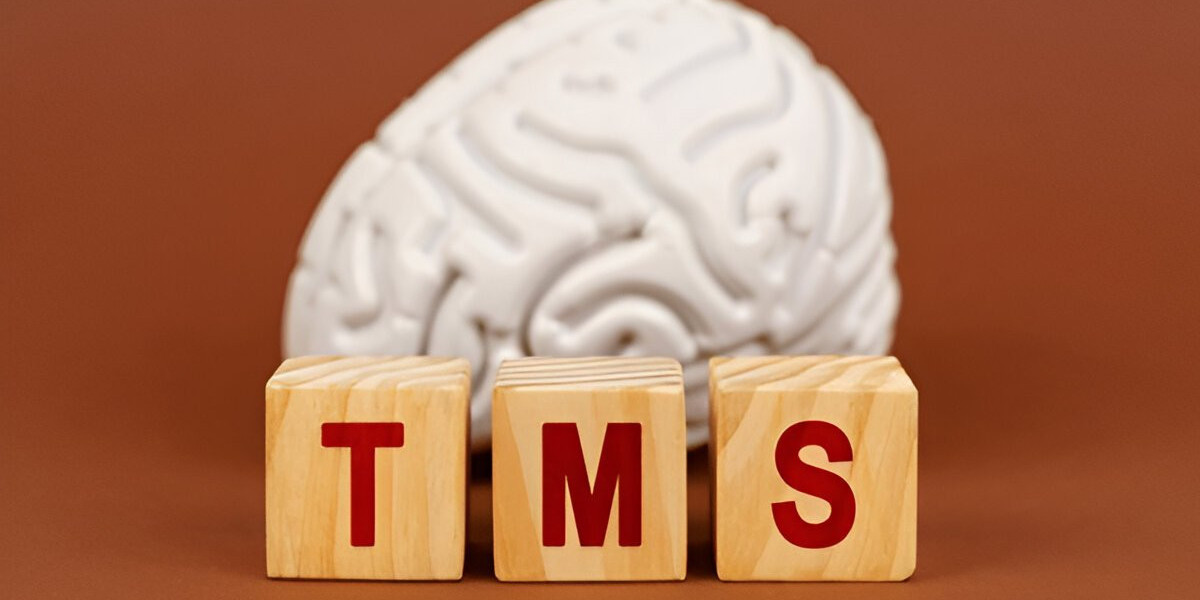When traditional treatments like medication and therapy fall short, many individuals struggling with depression or anxiety feel hopeless. But there’s good news—Transcranial Magnetic Stimulation (TMS) is emerging as a powerful, non-invasive solution for people who haven’t found relief through conventional methods.
But not everyone is a good fit for TMS therapy. So, who qualifies—and who should seriously consider it?
Let’s take a closer look at what makes someone an ideal candidate for TMS, and how clinics like Center For Integrative Psychiatry use this treatment to support patients seeking lasting change.
Understanding TMS: What It Is and How It Works
TMS (Transcranial Magnetic Stimulation) is an FDA-approved procedure that uses magnetic pulses to stimulate nerve cells in the brain—specifically, the areas involved in mood control and depression. Unlike medication, which affects the entire body, TMS directly targets the brain without causing systemic side effects.
The treatment is conducted in a medical setting while the patient remains awake and seated. No anesthesia is required, and sessions typically last 20 to 40 minutes, five days a week, over the course of 4 to 6 weeks.
Benefit: TMS offers targeted brain stimulation without the need for medication or invasive procedures—making it a safe and effective option for many.
Who Is the Ideal Candidate for TMS Treatment?
1. Individuals with Treatment-Resistant Depression
One of the primary groups who benefit from TMS are individuals with treatment-resistant depression—meaning they’ve tried at least two different antidepressant medications with little or no relief.
For these patients, traditional medications may have caused side effects, lost effectiveness over time, or simply failed to improve symptoms.
Why TMS helps:
TMS activates underperforming areas of the brain that are linked to mood regulation. For those who haven’t responded to medication, it can significantly reduce depressive symptoms and improve overall functioning.
2. Adults Diagnosed with Major Depressive Disorder (MDD)
TMS is especially effective for adults officially diagnosed with Major Depressive Disorder (MDD). These individuals often struggle with persistent sadness, low energy, difficulty concentrating, sleep disturbances, and a loss of interest in activities.
What sets them apart as ideal candidates is their ability to participate in and commit to the full treatment course, even while facing daily emotional challenges.
Why TMS helps:
TMS offers a structured, focused approach to managing depression that doesn't require medication, which can be appealing to those looking for alternatives with fewer side effects.
3. Individuals Who Prefer Non-Medication-Based Treatments
Some patients are either medically unable or personally unwilling to take antidepressants. They might have experienced side effects such as weight gain, fatigue, sexual dysfunction, or emotional numbness, or may be managing other health conditions that make medication unsafe.
These individuals often seek natural or non-pharmaceutical paths to healing.
Why TMS helps:
TMS offers a drug-free alternative to depression treatment, making it ideal for individuals who want effective, evidence-based care without the complications of daily medication.
4. People Living with Anxiety, OCD, or PTSD (Case-Dependent)
Although FDA-approved specifically for depression, TMS has shown promising results in treating other mental health conditions such as anxiety disorders, Obsessive-Compulsive Disorder (OCD), and Post-Traumatic Stress Disorder (PTSD)—particularly when guided by experienced professionals in a clinical setting.
At facilities like Center For Integrative Psychiatry, physicians may explore off-label uses of TMS for these conditions, especially when traditional treatments haven’t worked.
Why TMS helps:
By targeting specific regions of the brain, TMS can help regulate emotional responses and reduce the symptoms of certain anxiety-related conditions when used as part of a broader care plan.
5. Patients Ready for Structured, Consistent Treatment
TMS therapy is not a one-time session. It requires a commitment to daily sessions (5 days per week) over the course of 4 to 6 weeks. Ideal candidates are individuals who are ready to stay consistent and show up for the entire treatment cycle.
These individuals understand that healing is a process and are motivated to engage fully in that journey.
Why TMS helps:
The cumulative effect of regular stimulation improves brain function over time. Patients who follow the treatment plan closely often report significant mood improvements, increased motivation, and a better quality of life.
Who Is Not a Good Candidate for TMS?
TMS may not be appropriate for:
Individuals with metal implants or devices in or near the head (like aneurysm clips, cochlear implants, or pacemakers)
Those with a history of seizures or epilepsy
People experiencing severe psychosis or actively suicidal thoughts
A professional medical evaluation is essential to assess eligibility. Clinics such as Center For Integrative Psychiatry conduct thorough screenings to ensure TMS is the right and safe option for each patient.
Final Thoughts: Is TMS Right for You?
TMS treatment offers real hope for individuals living with depression and related conditions who haven't responded to traditional care. While it’s not for everyone, the right candidate—someone who meets the clinical criteria and is ready to commit to the journey—can see life-changing results.
If you're feeling stuck, overwhelmed, or exhausted from trying medication after medication, it might be time to explore new possibilities. At Center For Integrative Psychiatry, patients are carefully evaluated and guided through personalized care plans to determine whether TMS is the next right step.
You’ve tried everything. Now try something different—and finally start to feel like yourself again.
FAQs: TMS Treatment
1. Is TMS therapy painful?
No. Most patients describe a tapping sensation on the scalp but do not experience pain. Mild discomfort may occur initially, but it usually fades quickly.
2. How soon will I see results?
Some individuals notice mood improvements within two weeks, while others may require four to six weeks to feel significant change.
3. Can TMS be used alongside therapy or medication?
Yes. TMS can be used as a standalone treatment or in combination with ongoing therapy and medication, depending on the patient’s needs.
4. How long do the effects of TMS last?
Results vary, but many people experience long-term relief. Some patients may return for maintenance sessions as needed.
5. Is TMS treatment covered by insurance?
Most insurance providers cover TMS for treatment-resistant depression after medical review and pre-authorization.






